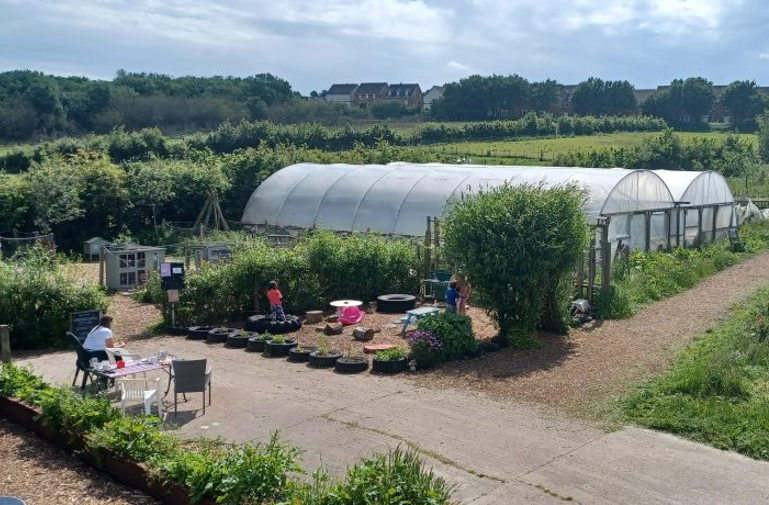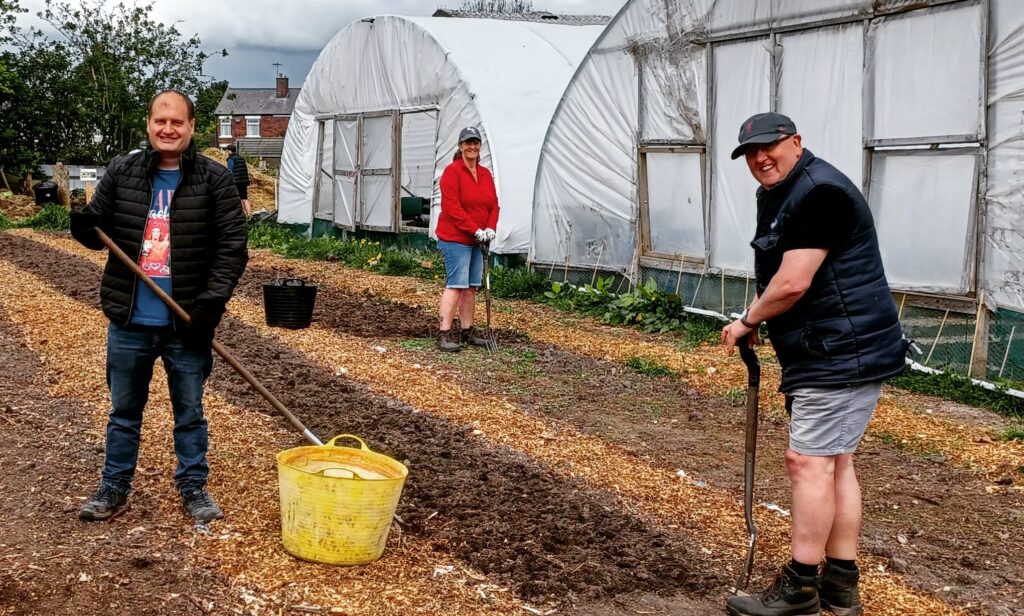
It all started with four people from a small Transition group and a derelict former farm site. Four people, an old farm, and an idea to grow a bit of food, maybe teach local kids about nature.
Today, Greenslate community-run farm is a hive of community activity, with hundreds of people visiting, volunteering and learning each month. It’s home to rescue and heritage animals, a social enterprise cafe, drug recovery service, a community project incubator, a men’s shed and Rhiannon Jones, one of those founding four Transitioners and today, project co-ordinator who lives on the bustling site.
I’m keen to hear more about how the amazing project grew out of Billinge and Orrell in Transition, ahead of our North West Regional gathering to be held at the farm in June. So we jump on zoom, between sheep shearing, looking after volunteers and the other many and varied tasks that make up her role.
Rhiannon explained that from early on the farm had been about growing community and meeting very definite needs in their neighbourhood. “We were very aware there was fuel and food poverty among the local population,” which included former coal mining communities and many retired folk, Rhiannon explained. At the same time, land was sold off for new, larger houses, bringing in new families drawn to the semi-rural idyll.
This dynamic community mix could create tension – the Greenslate team saw it as an opportunity, and that their site offers common ground for locals from different backgrounds to learn, grow and share skills.
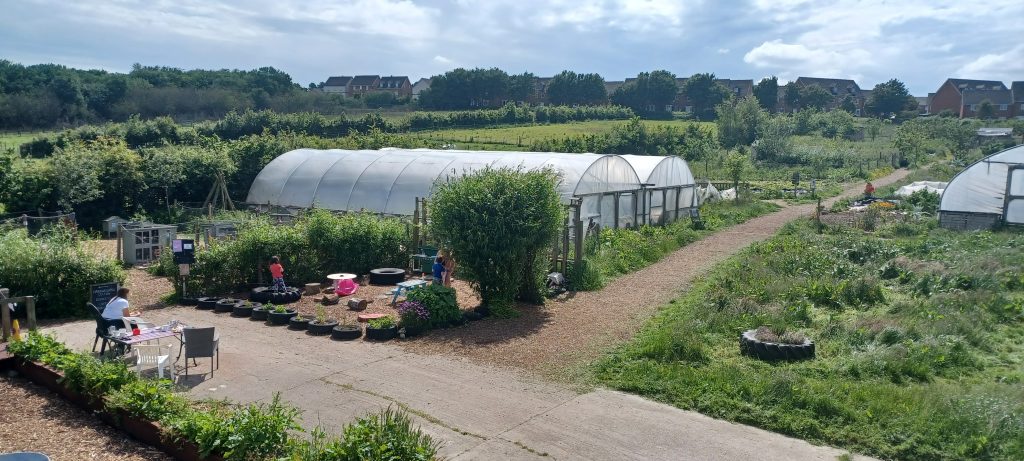
Greenslate Farm is surrounded by housing on three sides, where urban meets rural, and also where different parts of the community meet.
The site has been a council-owned farm for hundreds of years, initially attached to a workhouse, then later a hospital. Wigan Council ran it until funding pressures in the 1990s closed the gates.
“Billinge and Orrell Transition at the time only had about eight active members; four of us really passionate about the farm,” said Rhiannon, and they formed a sub-group to pursue it while other members worked on energy and local economy issues. “We knew about Greenslate farm because its slap bang in the middle of our community.”
It took some years of dogged determination to persuade the council to release the land, but as austerity took hold and the group demonstrated how their project would benefit the community and help achieve the Council’s goals, eventually in 2012, the council gave the go ahead and a five year lease for the land.
Some of the long-standing local community were unsure at first:
“Because we were also eco friendly, bringing regenerative approaches, they were looking at us and thinking here are the tree hugging hippies coming in! They had us pigeon holed.
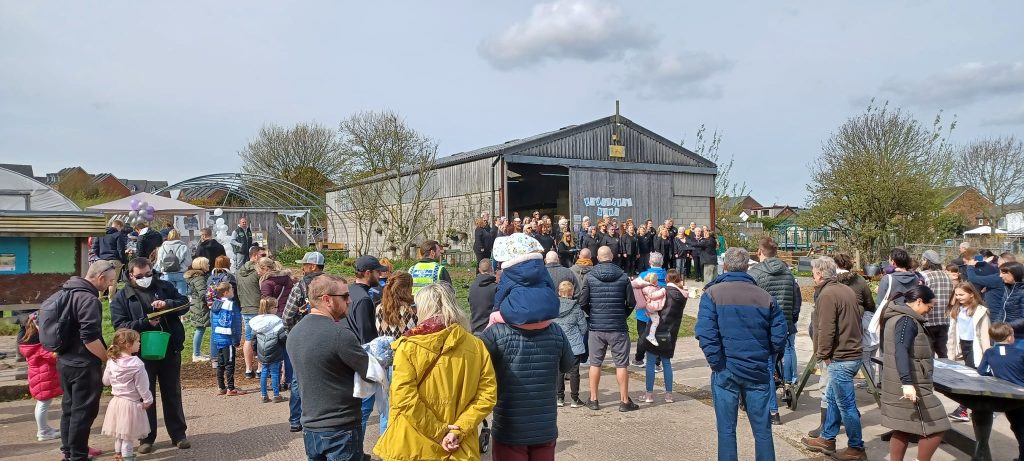
Greenslate Farm’s first family fun day after Covid. They host regular community events and the farm is open to visitors each day.
“They don’t have that perception any more. It’s got more positive as we’ve gone along. We’ve had a lot of community events and invited people in. We don’t try and ram a radical message down people’s throat, we remain neutral in politics and religion and belief systems, not affiliated, that’s helped, because if you do affiliate yourself, you lose half the audience.”
The farm is open to the public, with no admission, so local people are welcome to come and visit and get involved any time.
Early on, as the NHS hospital closed, daycare services for people with learning disabilities, brain injury and struggling with mental health closed – the team immediately saw a need they were in a position to meet.
“Our plan was a regenerative farm on permaculture principles – obviously it’s not just about how you treat the land, it’s about how you treat your people.”
Now it’s grown to become an extensive care farm, with a number of different support services based on site, and working with a range of partners. The drug and alcohol recovery project will take over running the Strawbale cafe this summer, offering apprenticeships and routes to employment for people in recovery.
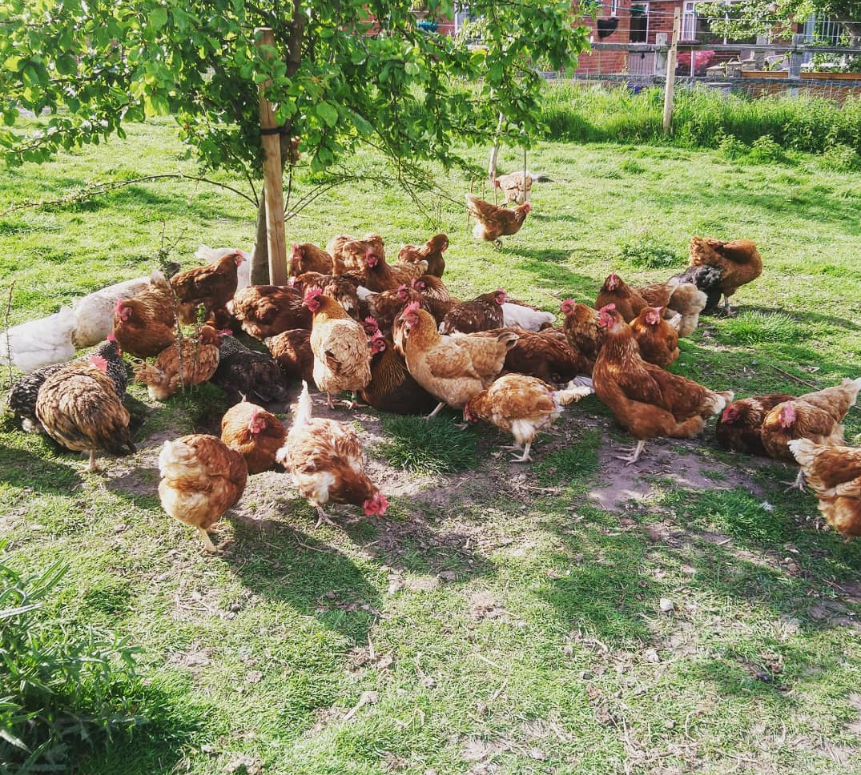
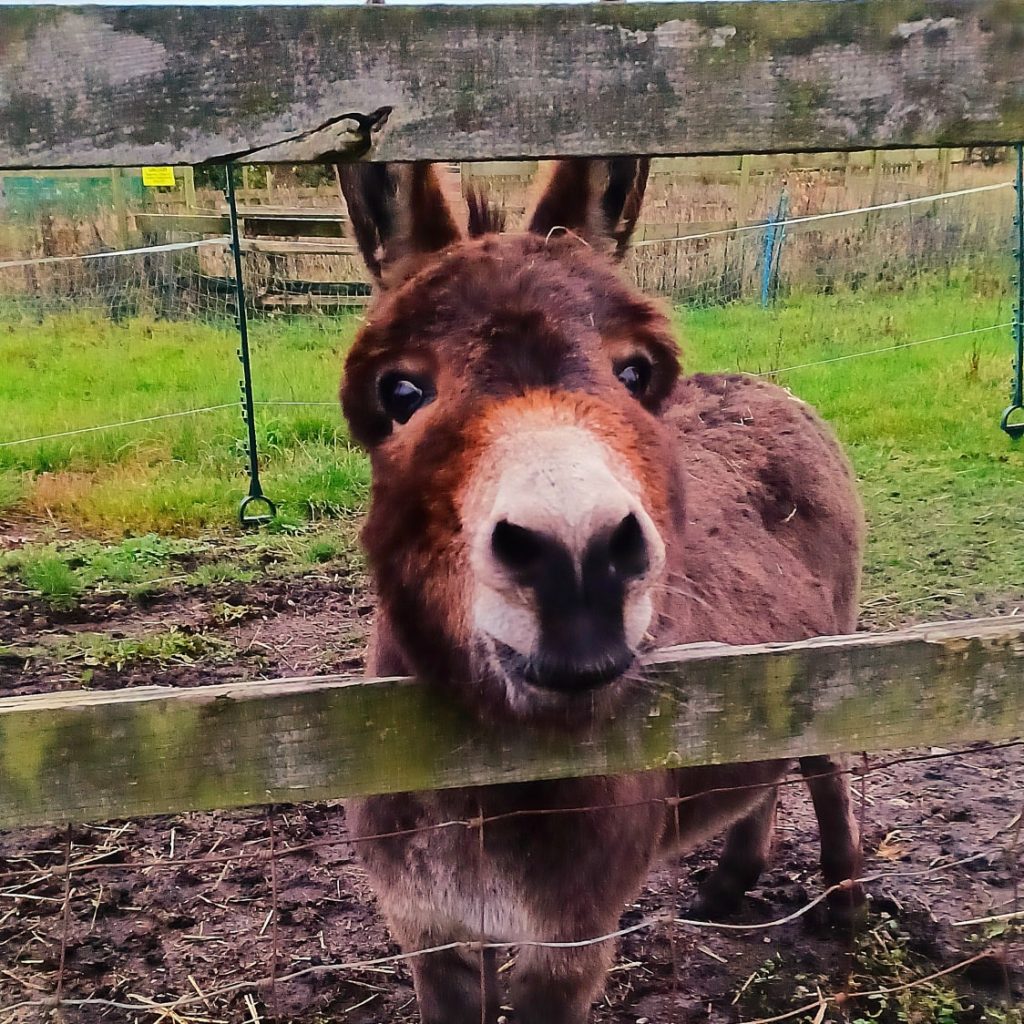
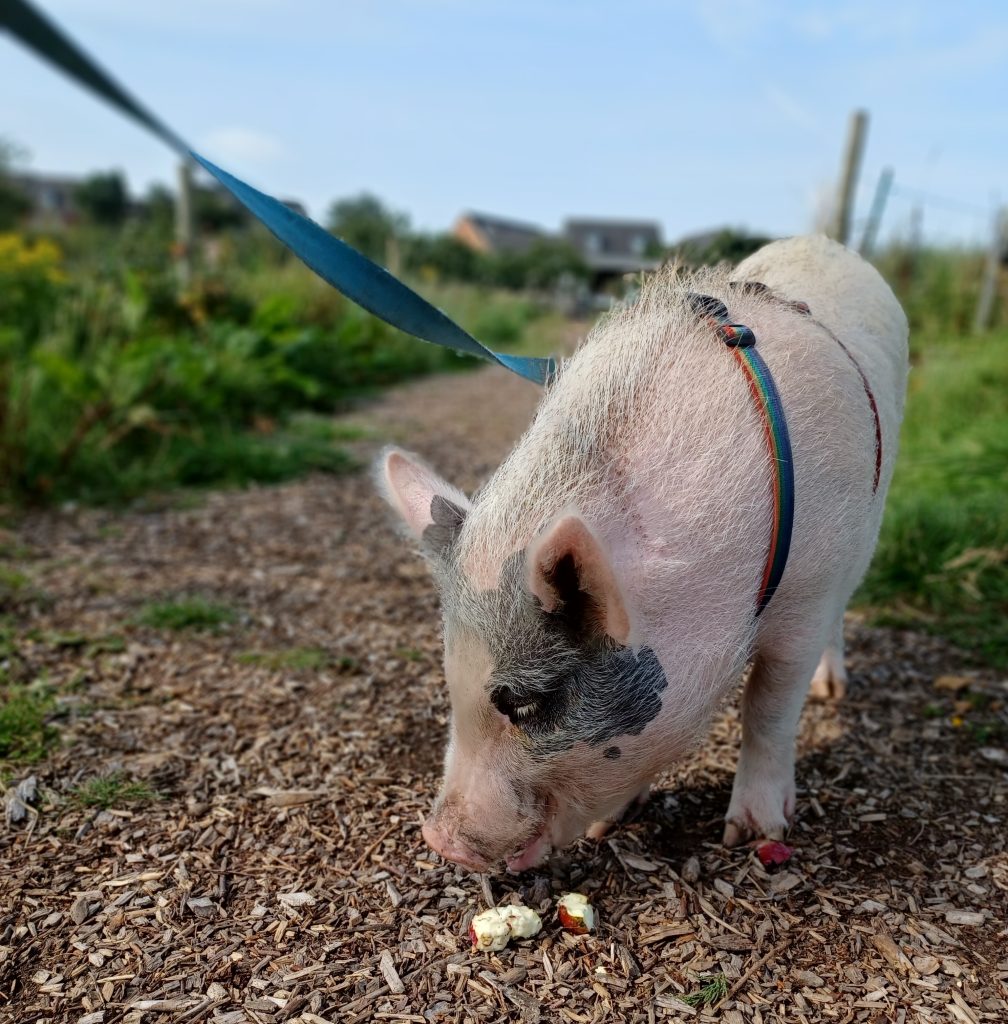
Chickens, donkey and Penny the pig: just some of the farm animals who live at the farm. (Pictures: Greenslate Farm)
Every week, 90 students come on animal care college placements, working with the farm’s re-homed livestock, including chickens, ducks, donkeys, goats, pigs, sheep and smaller animals. Because they are rescued and heritage breeds, they can be ‘more diva-ish’, says Rhiannon, but have many benefits – their heritage sheep were ideal for conservation grazing after the Saddleworth heath fires, reducing the risk in future.
They host more than 100 school groups a year, nature rangers youth group, forest schools and regular family fun days. The site and food growing is looked after by volunteers, with the nine staff focused on providing the specialised therapeutic services. There’s a bike club, men’s shed, mum and baby group and a host of emerging community projects and enterprises using their space as a base. The groups benefit from low cost rent and loads of connections as the farm has become a thriving hub of community action – at the same time the small Greenslate team doesn’t need to initiate or run every activity that takes place on site.
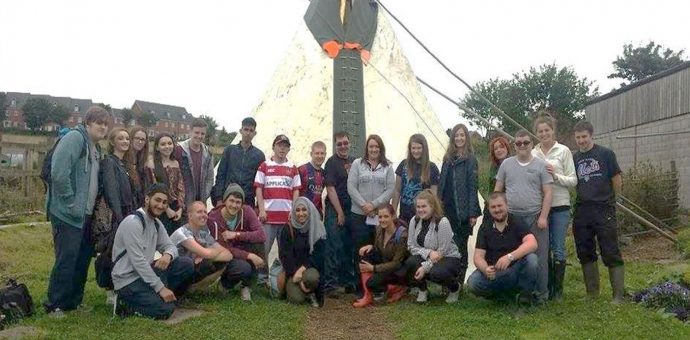
The farm is reliant on volunteers, like this team who erected a tipi for children’s activities. Picture: Greenslate Farm.
“We never planned it to be this big! We just wanted to grow some cabbages and bring some children down to do some bushcraft and bring the community together,” said Rhiannon, adding that more recently many other social projects have emerged in their area. “I can’t say it was us that did it, but at the beginning we were the only ones doing it for a very long time, then a lot of other groups came along, we gave them the space and support.”
Perhaps seeing what’s possible with a small group, a willingness to learn and a vision has given other local people the confidence to take things on.
As we wind up, and Rhiannon heads back out to deal with site maintenance and stubborn animals, I’m struck by three things. How amazing things can come from small beginnings – especially when we reach out and work with others, and leave space to see what emerges.. How intricately linked caring for nature and our planet is with caring for community and each other, including those who face extra challenges but have much to give.
And thirdly, i’m even more excited to see Greenslate in action next month than I already was! And you can too – join our free, in person, North West regional gathering taking place on the farm for an excuse to see this special place for yourself. All while exploring how we Transform Our Future with Transitioners and other networks across the region. It will be the boost you need!
Find out more
About Greenslate Community Farm and about our regional gatherings.


